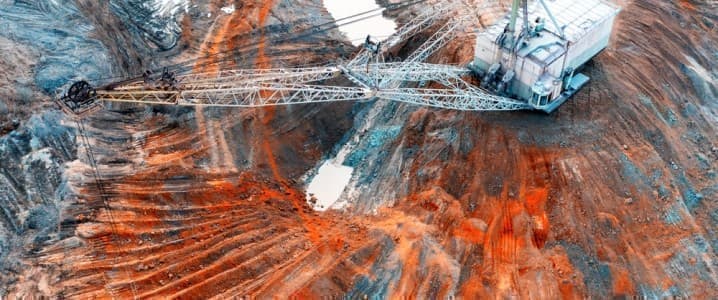The United States is looking to develop new rare earth minerals supply chains to reduce China’s dominance of the sector. In October, President Donald Trump and Australian Prime Minister Anthony Albanese met at the White House to sign an agreement for the strengthening of the critical minerals and rare earths supply chain, with $8.5 billion in projects outlined.
Rare earths are critical minerals that are used in a variety of applications, including the production of magnets for weapons platforms, semiconductor manufacturing, robotics, and electric vehicles. Currently, China is the largest producer of rare earth metals, dominating the global supply chain. China holds around 70 percent of the world’s rare earth metals, or 44 million metric tonnes of reserves, followed by Brazil with 21 million tonnes, India with 6.9 million tonnes, and Australia with 5.7 million tonnes.
As an ally with the United States, Australia is well-positioned to develop its rare earths market, with financial support from the North American country to help counter Chinese dominance. Following the meeting, Albanese said there would be three groups of joint projects between Australia and the U.S., including companies such as the U.S. aluminium firm Alcoa.
The deal reportedly includes an investment of $3 billion from the U.S. for mining and processing projects and outlines a price floor for critical minerals. The White House announced that it plans to invest in the construction of a gallium refinery in Western Australia with a capacity of 100 metric tonnes per year. It said that U.S. investments in Australia were expected to unlock deposits of critical minerals worth $53 billion.
President Trump told reporters, “In about a year from now, we’ll have so much critical mineral and rare earths that you won’t know what to do with them.” He also said that the U.S. is working with countries other than Australia to diversify its critical mineral supply chains.
However, the development of Australia’s rare earth metals market could take between five and seven years, according to sectoral experts. Meanwhile, China continues to contribute 90 percent of the world’s rare earths refining capacity, around 69 percent of global rare earth mining, and 98 percent of magnet manufacturing.
Following the deal between Trump and Albanese, China’s Ministry of Foreign Affairs, Guo Jiakun, responded by saying, “Resource-rich nations with critical minerals should play a proactive role in safeguarding the security and stability of the industrial and supply chains, and ensure normal economic and trade cooperation.”
Earlier in October, China’s Commerce Ministry announced expanded curbs on the export of rare earths, stating that it aimed to prevent the “misuse” of minerals in the military and other sensitive sectors. The Asian giant added dozens of pieces of refining technology to its control list and announced rules requiring compliance from foreign rare earth producers who use Chinese materials. This led many in the industry to raise concerns over the lack of diversity in the global supply and the potentially detrimental effect of China’s decision.
The rare earth market was valued at $6 billion in 2024, according to Goldman Sachs. The financial institution warned that a disruption of 10 percent in industries reliant on rare earths could lead to $150 billion in economic losses. It said that samarium, graphite, lutetium, and terbium would be extremely vulnerable to export reductions.
The bank said that Western producers, such as Lynas Rare Earths and Solvay, could alleviate the shortages, but dependence on China remains high. It emphasised the eight-to-10-year timeline to develop new rare earth mines and the need for advanced expertise and infrastructure, which most countries with mining potential would need to develop.
The U.S. government is not only looking to Australia to reduce its reliance on China, but is also discussing the possibility of establishing a strategic reserve of rare earths and supporting domestic producers with price controls and tariffs. During his trip to Asia this month, Trump also signed deals with Japan, Malaysia, Thailand, Vietnam, and Cambodia to diversify access to critical minerals.
This week, the U.S. and China reached a framework agreement that will halt the implementation of a 157 percent tariff on Chinese goods and could make way for a trade deal between President Trump and Chinese leader Xi Jinping when they meet. Little information has been released about the deal, but it is likely to include an agreement on rare earths.
Despite the potential deal between the U.S. and China, the Trump administration is expected to continue to seek ways to diversify its critical minerals supply chain to reduce its reliance on China. Following several months of strained trade relations, the U.S. is expected to continue investing in its energy sovereignty by offering financial support to domestic companies and establishing deals with other world allies across a range of energy sources.
By Felicity Bradstock for Oilprice.com
More Top Reads From Oilprice.com
Oilprice Intelligence brings you the signals before they become front-page news. This is the same expert analysis read by veteran traders and political advisors. Get it free, twice a week, and you’ll always know why the market is moving before everyone else.
You get the geopolitical intelligence, the hidden inventory data, and the market whispers that move billions – and we’ll send you $389 in premium energy intelligence, on us, just for subscribing. Join 400,000+ readers today. Get access immediately by clicking here.



Leave a Comment
Your email address will not be published. Required fields are marked *